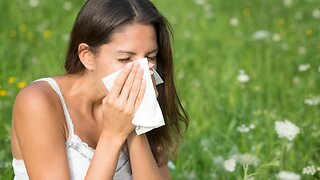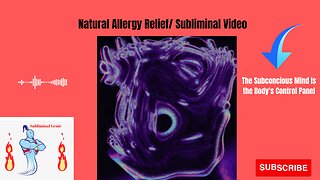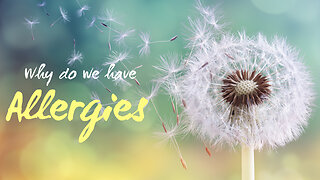Allergies || Health Video | MedlinePlus
Allergies are a reaction of the body's immune system to substances that are typically harmless. These substances are known as allergens and can include things like pollen, dust mites, animal dander, certain foods, and insect stings.
When the body encounters an allergen, it produces an antibody called immunoglobulin E (IgE), which triggers the release of histamine and other chemicals. This release causes symptoms such as sneezing, itching, swelling, and in severe cases, anaphylaxis.
There are several types of allergies, including:
Seasonal allergies - also known as hay fever or allergic rhinitis, caused by exposure to airborne allergens such as pollen.
Food allergies - caused by certain foods, such as nuts, eggs, shellfish, and dairy products.
Insect sting allergies - caused by the venom from the sting of an insect, such as a bee or wasp.
Medication allergies - caused by certain medications, such as penicillin or aspirin.
Contact allergies - caused by touching or coming into contact with certain substances, such as latex or poison ivy.
Treatment for allergies typically involves avoiding the allergen when possible, taking medications to relieve symptoms, and in some cases, undergoing immunotherapy to reduce the body's sensitivity to the allergen.
-
 1:13:24
1:13:24
Dr. Steve
1 year agoAllergies
13 -
 5:49
5:49
EssentialsByDeb
3 years ago $0.01 earnedAllergies and Essential Oils
56 -
 40:02
40:02
SubliminalGenie
9 months agoNatural Allergy Relief / Subliminal Video
74 -
 3:00
3:00
Enlightened Talks
5 months agoAllergies/Reactions to things you don’t want to give up
496 -
 30:25
30:25
Just In Health
3 years agoThe Allergy and Hormone Connection - Natural Allergy Solutions - Part 2 | Podcast #314
971 -
 9:59
9:59
Dr. André Dourado
8 months agoAre Allergies Normal? Discovering the Shocking Truth Behind the Silent Epidemic
12 -
 2:26
2:26
WCPO
4 years agoIs It Allergies? Or Something Else? A TriHealth Doctor Explains
26 -
 0:34
0:34
Health &Well Being to your fullest
1 year agoallergies
1 -
 3:26
3:26
Theilluminator
3 years agoALLERGIES AND SINUSES - 061820 TTV909
1 -
 0:14
0:14
North_of_49th_Parallel
3 years agoIf my allergies were not so bad, I’d do the same thing 😂❤️🐶
5